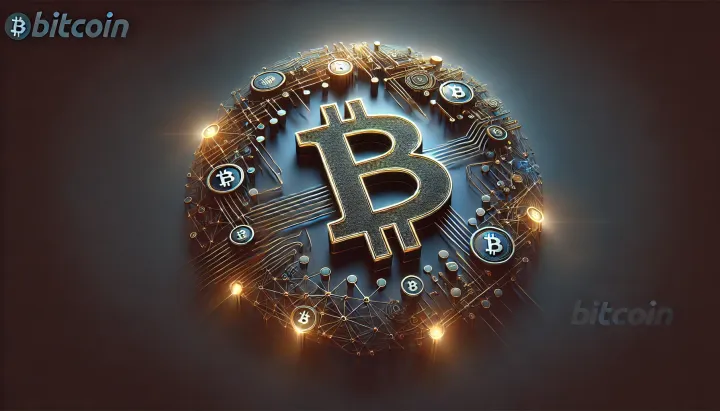Transforming Value in a Bitcoin Era
The April 04, 2025 episode The Transformation of Value podcast features Bitkiwi Paul discussing Bitcoin’s evolution as a superior store of value compared to traditional property investments.

- My 'briefing notes' summarize the content of podcast episodes; they do not reflect my own views.
- They contain (1) a summary of podcast content, (2) potential information gaps, and (3) some speculative views on wider Bitcoin implications.
- Pay attention to broadcast dates (I often summarize older episodes)
- Some episodes I summarize may be sponsored: don't trust, verify, if the information you are looking for is to be used for decision-making.
Summary
The April 04, 2025 episode The Transformation of Value podcast features Bitkiwi Paul discussing Bitcoin’s evolution as a superior store of value compared to traditional property investments. Paul outlines how decentralized trade and economic disenfranchisement challenge legacy financial systems. His insights call for bridging information gaps amid rapid institutional and societal transitions.
Take-Home Messages
- Bitcoin’s Store of Value: Bitcoin offers a secure, self-custody alternative that challenges traditional property investments.
- Economic Disenfranchisement: Reliance on fiat systems stifles entrepreneurial ambition and individual financial freedom.
- Institutional Caution: Informed adoption is critical as misaligned institutional investments may destabilize markets.
- Decentralized Innovation: Peer-to-peer platforms like Orange Pages demonstrate how decentralized trade can bypass legacy intermediaries.
- Knowledge Gap: Bridging the informational divide is essential for smooth societal and regulatory transitions.
Overview
Bitkiwi Paul begins by recounting how ideas once dismissed as radical have now become normalized, positioning Bitcoin as a transformative asset. He contrasts traditional property investments with Bitcoin’s promise of true ownership and security. His personal journey underscores the shifting paradigm in wealth preservation.
Paul examines the limitations of fiat-based economies, noting how government dependency and conventional career paths can dampen entrepreneurial drive. He contrasts the vibrancy of urban regeneration in regions like Christchurch with the stagnation seen in Wellington. His narrative emphasizes that decentralized financial models can empower individuals and communities.
Throughout the discussion, Paul critiques the ideological clash between fiat money and Bitcoin. He highlights the importance of understanding Bitcoin’s fundamentals as institutions begin to integrate it. His commentary suggests that an informed public and regulatory framework are key to mitigating transition risks.
The broadcast also introduces Orange Pages, a peer-to-peer marketplace designed for Bitcoiners. Paul presents this innovation as a practical example of how decentralized platforms can disrupt traditional trade. He concludes by stressing the urgency of addressing knowledge gaps to secure a smooth economic transition.
Stakeholder Perspectives
- Bitcoin Investors: Focus on leveraging Bitcoin’s potential as a robust store of value while managing market volatility.
- Institutional Investors: Cautious about integrating Bitcoin without full comprehension of its underlying technology and market dynamics.
- Urban Planners and Local Governments: Observe regional economic shifts and urban regeneration as indicators of broader systemic change.
- Entrepreneurs and Startups: Seek opportunities in decentralized platforms that bypass traditional financial intermediaries.
- General Public: Need clear, accessible information to understand the benefits and risks associated with transitioning to Bitcoin-based systems.
Implications and Future Outlook
The discussion implies that Bitcoin’s role as a store of value may redefine traditional investment strategies, challenging the primacy of property as a wealth preservation tool. Policymakers and financial institutions must adapt to these evolving dynamics to avoid instability. The need for improved public and institutional education is paramount for a smooth transition.
Paul’s insights suggest that the ideological divide between fiat money and Bitcoin could reshape societal perceptions of wealth and work. As decentralized models gain traction, traditional career paths and government employment may lose their dominance. This shift has broad implications for economic policy and social mobility.
The rapid integration of Bitcoin into mainstream finance presents both opportunities and risks. A swift transition could spur innovation, but without adequate safeguards, it might also trigger market turbulence. Proactive measures to address information asymmetry and regulatory challenges will be critical to harnessing Bitcoin’s full potential.
Some Key Information Gaps
- How does Bitcoin's performance as a store of value compare to traditional property investments over the long term? This question is critical as it addresses a fundamental shift in wealth preservation strategies. Understanding this can guide both investors and policymakers.
- What are the risks associated with institutional adoption of Bitcoin when investors lack a deep understanding of its fundamentals? This question is vital due to the potential for market instability and misaligned regulatory responses. Its resolution could inform safer institutional integration strategies.
- In what ways does the ideological clash between fiat money and Bitcoin shape public perceptions of wealth? This question explores how conflicting narratives affect societal acceptance of alternative monetary systems. It is essential for crafting effective communication strategies.
- What gaps exist in the understanding of Bitcoin among institutional investors and the general public? Addressing this question is necessary because information asymmetry can hinder effective adoption and policy formation. Bridging this gap is key to smoother economic transitions.
- What potential risks are associated with a rapid transition to a Bitcoin standard in the global economy? This question examines the balance between urgent innovation and systemic stability. Its exploration is crucial for developing strategies to mitigate economic shocks.
Broader Implications
Institutional Integration Challenges
The broadcast suggests that as institutions adopt Bitcoin, a lack of deep understanding could lead to market mispricing and regulatory mismatches. This risk emphasizes the need for robust educational frameworks and clear regulatory guidelines. A well-informed institutional landscape is essential to maintain market stability and long-term trust in Bitcoin.
Urban Economic Transformation
Paul’s observations on urban regeneration highlight how regional economic shifts can signal broader trends in societal adaptation to decentralized financial models. Cities like Christchurch demonstrate that modernization and innovation can occur even amidst traditional economic decline. This transformation may drive policymakers to reimagine urban planning and resource allocation in a Bitcoin-influenced economy.
Decentralized Trade Evolution
The introduction of platforms like Orange Pages underscores the potential of decentralized marketplaces to disrupt conventional trade. Such innovations can empower individuals by reducing reliance on centralized intermediaries and fostering direct peer-to-peer transactions. As these platforms mature, they may redefine economic participation and democratize value exchange on a broader scale.



Comments ()